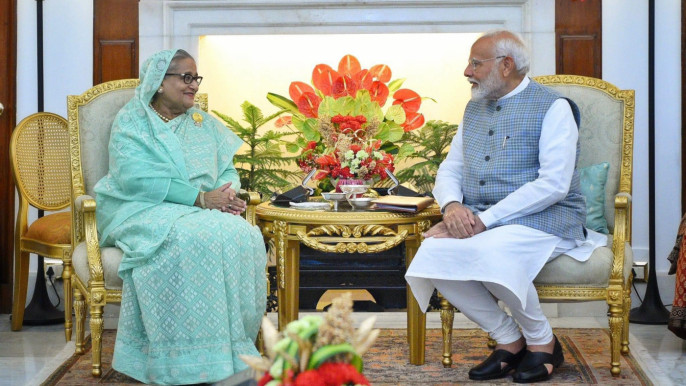
India’s strong message on Bangladesh’s Teesta project amid Chinese overreach
NEW DELHI : In an effort to edge out China in its strategic backyard, India recently announced that it will send a technical team to neighbouring Bangladesh for the conservation and management of Teesta river.
The announcement was part of about 10 agreements/MoUs inked between the two countries during talks between Prime Minister Shri Narendra Modi and his Bangladesh counterpart Smt Sheikh Hasina. Hasina is on a visit to New Delhi.
After his talks with Hasina, PM Modi said an Indian technical team will soon visit Dhaka for talks on the conservation and management of Teesta river.
“Fifty-four shared rivers connect India and Bangladesh. We have been cooperating on flood management, early warning, drinking water projects. We have decided to start negotiations at the technical level for the renewal of the 1996 Ganga Water Treaty,” he said.
India’s move to send a technical team for the Teesta river is significant since China has been eyeing the estimated $1 billion project despite opposition from New Delhi.
Long-standing dispute
The Teesta water dispute has been a complex issue involving the sharing of water resources between India and Bangladesh.
Teesta, which originates from eastern Himalayas, flows through Sikkim and West Bengal and finally enters Bangladesh through Rangpur.
In 2011, under then PM Manmohan Singh, India agreed to share 37.5 per cent of Teesta waters while retaining 42.5 per cent of the waters during the lean season between December and March.
But the deal failed to materialise amid opposition from West Bengal CM Mamata Banerjee.
Plus, the building of dams along the Teesta in Sikkim led to lean seasonal flow draining into Bangladesh.
In 2020, China first expressed interest in the Teesta Management and Conservation project.
Then, in December last year, Beijing’s ambassador to Dhaka reiterated that they are willing to support the project. China also submitted a revised proposal to Bangladesh, at a lower cost than what it originally proposed in 2020.
The offer triggered strategic alarm bells in India due to the sensitivity of the dispute and geopolitical concerns arising from a possible Chinese involvement.
At a media briefing after the talks, Foreign Secretary Mr. Vinay Kwatra said the management of shared water resources is a crucial and sensitive matter.
He said that the technical team will evaluate the water restoration project, in an apparent signal to China that it does not need Beijing’s involvement in its cross-boundary river issues with Bangladesh.
Notably, Hasina is expected to travel to China next month as she herself tries to balance diplomatic ties with both the countries.

